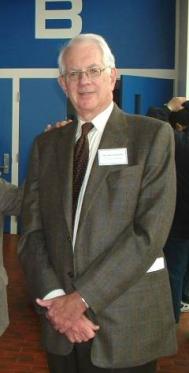The Nutcracker is a two-act ballet, originally choreographed by Marius Petipa and Lev Ivanov with a score by Pyotr Ilyich Tchaikovsky (op. 71). The libretto is adapted from E.T.A. Hoffmann's story The Nutcracker and the Mouse King. It was given its première at the Mariinsky Theatre in St. Petersburg on Sunday, December 18, 1892, on a double-bill with Tchaikovsky's opera, Iolanta.
Although the original production was not a success, the twenty-minute suite that Tchaikovsky extracted from the ballet was. However, the complete Nutcracker has enjoyed enormous popularity since the late 1960s and is now performed by countless ballet companies, primarily during the Christmas season, especially in the U.S. Major American ballet companies generate around 40 percent of their annual ticket revenues from performances of The Nutcracker.
Tchaikovsky's score has become one of his most famous compositions, in particular the pieces featured in the suite. Among other things, the score is noted for its use of the celesta, an instrument that the composer had already employed in his much lesser known symphonic ballad The Voyevoda.
St. Petersburg première
The first performance of the ballet was held as a double premiere together with Tchaikovsky's last opera, Iolanta, on 18 December 1892, at the Imperial Mariinsky Theatre in St. Petersburg, Russia. Although the libretto was by Marius Petipa, who exactly choreographed the first production has been debated. Petipa began work on the choreography in August 1892; however, illness removed him from its completion and his assistant of seven years, Lev Ivanov, was brought in. Although Ivanov is often credited as the choreographer, some contemporary accounts credit Petipa. The performance was conducted by Riccardo Drigo, with Antonietta Dell'Era as the Sugar Plum Fairy, Pavel Gerdt as Prince Coqueluche, Stanislava Belinskaya as Clara, Sergei Legat as the Nutcracker-Prince, and Timofey Stukolkin as Drosselmeyer. The children's roles, unlike many later productions, were performed by real children rather than adults (with Belinskaya as Clara, and Vassily Stukolkin as Fritz), students of Imperial Ballet School of St. Petersburg.
The first performance of The Nutcracker was not deemed a success. The reaction to the dancers themselves was ambivalent. While some critics praised Dell'Era on her pointework as the Sugar Plum Fairy (she allegedly received five curtain-calls), one critic called her "corpulent" and "podgy." Olga Preobrajenskaya as the Columbine doll was panned by one critic as "completely insipid" and praised as "charming" by another.
Alexandre Benois described the choreography of the battle scene as confusing: "One can not understand anything. Disorderly pushing about from corner to corner and running backwards and forwards – quite amateurish."
The libretto was criticized for being "lopsided" and for not being faithful to the Hoffmann tale. Much of the criticism focused on the featuring of children so prominently in the ballet, and many bemoaned the fact that the ballerina did not dance until the Grand Pas de Deux near the end of the second act (which did not occur until nearly midnight during the program). Some found the transition between the mundane world of the first scene and the fantasy world of the second act too abrupt. Reception was better for Tchaikovsky's score. Some critics called it "astonishingly rich in detailed inspiration" and "from beginning to end, beautiful, melodious, original, and characteristic." But even this was not unanimous as some critics found the party scene "ponderous" and the Grand Pas de Deux "insipid."

